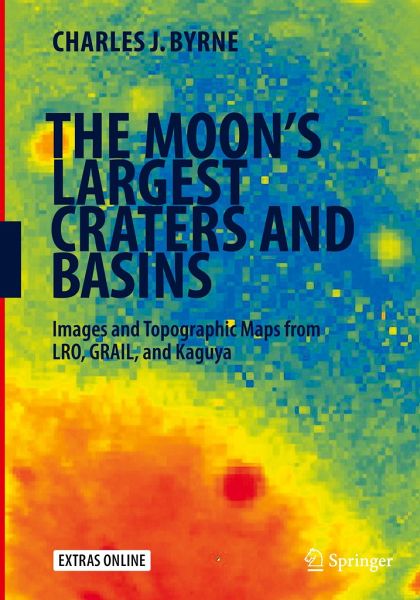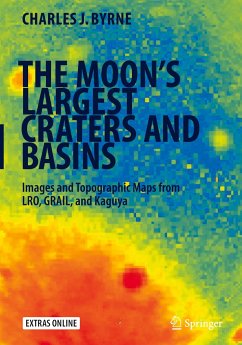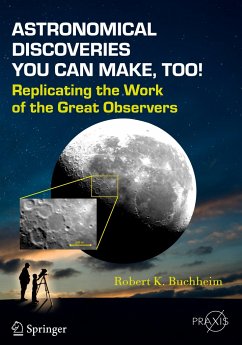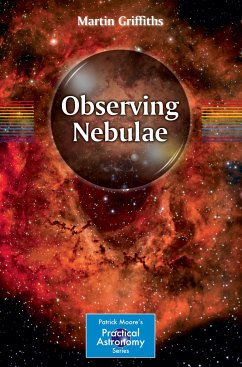
The Moon's Largest Craters and Basins
Images and Topographic Maps from LRO, GRAIL, and Kaguya
Versandkostenfrei!
Versandfertig in 6-10 Tagen
29,99 €
inkl. MwSt.
Weitere Ausgaben:

PAYBACK Punkte
15 °P sammeln!
This most recent book from lunar expert Charles J. Byrne combines the latest comprehensive imagery, topography and gravity data from all three recent Moon missions, Kaguya, Lunar Reconnaissance Orbiter and GRAIL. These major polar-orbit surveys are presented here in compact form for the convenience of amateur and practical astronomers concerned with the Moon. Chosen from the Near and Far Side's large craters and basins over 200 km in diameter, each of the 71 highlighted features is depicted with a two-page presentation of the data that includes false color topographic maps next to the mission ...
This most recent book from lunar expert Charles J. Byrne combines the latest comprehensive imagery, topography and gravity data from all three recent Moon missions, Kaguya, Lunar Reconnaissance Orbiter and GRAIL. These major polar-orbit surveys are presented here in compact form for the convenience of amateur and practical astronomers concerned with the Moon. Chosen from the Near and Far Side's large craters and basins over 200 km in diameter, each of the 71 highlighted features is depicted with a two-page presentation of the data that includes false color topographic maps next to the mission images. Additionally, the features are presented in the estimated chronological sequence of their creation, based on a consideration of stratigraphy (overlapping layers from neighboring features) and the relative degradation of surface features. Using this sequence as a way to convey the relative ages of lunar features, the author presents various theories concerning the Moon's impact and thermal history e.g. the available evidence allows for constraints to be placed on the duration of the Late Heavy Bombardment period. The relationships between impact dynamics and variations in the gravity field of the Moon are also discussed. The new mission data makes possible this renewed conjecture about the history and evolution of the Moon, which is presented here with much worthwhile information for amateurs and professionals alike.












